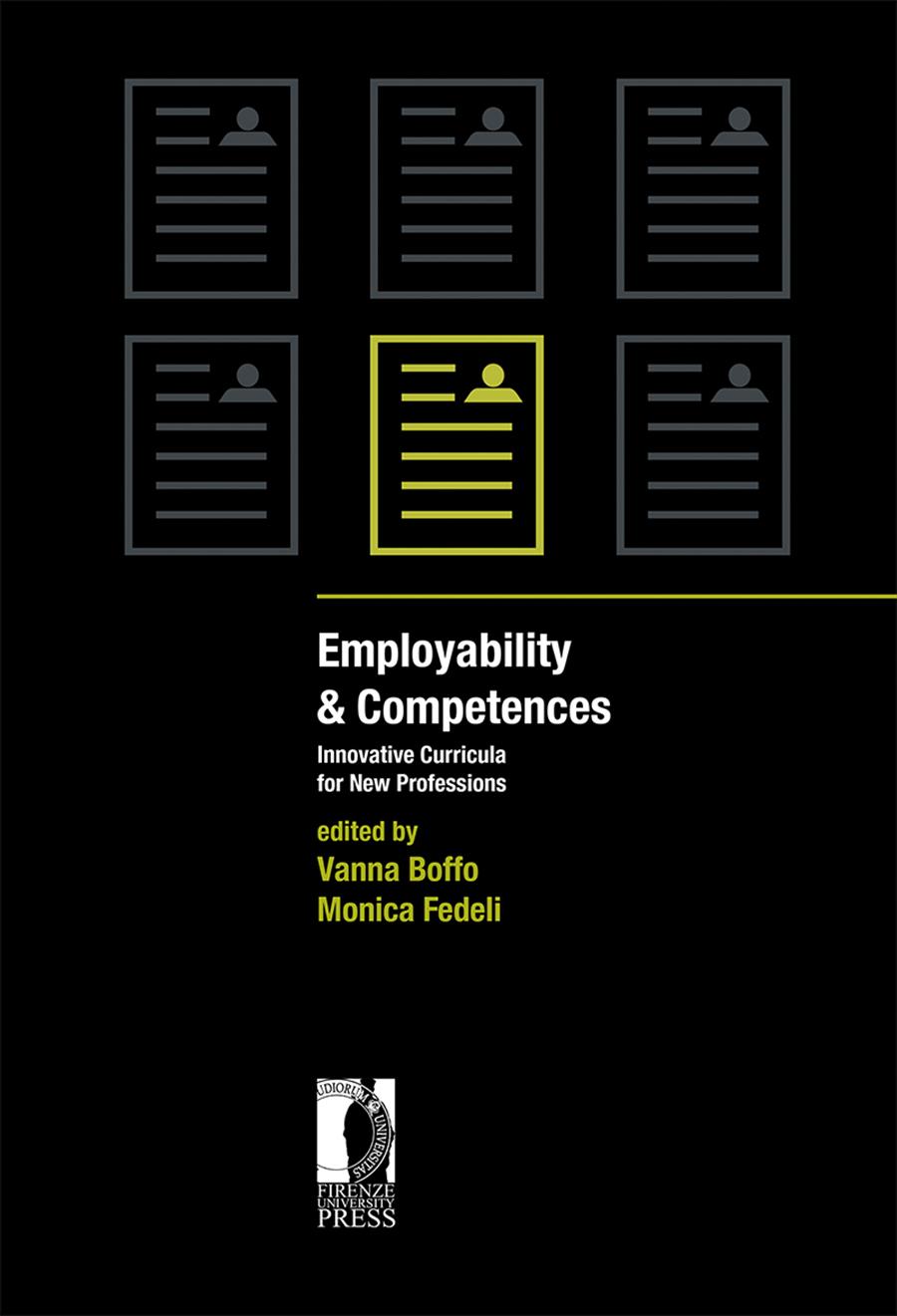- Employability & Competences
- Edited by Vanna Boffo, Monica Fedeli
Higher Education and Work-Related Learning from Professionalism to Professionality
- Maura Striano
- © 2018 Author(s) |
- CC BY 4.0
- DOI: 10.36253/978-88-6453-672-9.13
Within a complex economic, political, and social scenario that requires high-level competencies as well as increasingly active citizenship, the European and international agenda for higher education needs to be renewed and re-articulated according to new goals and priorities. Higher education should offer students the opportunity to develop aptitudes and acquire advanced but flexible competencies and skills that go beyond mere professionalism and instead focus on the development of a sound professionality
- Keywords:
- professionality,
- professional epistemology,
- work-related learning,
University of Naples Federico II, Italy - ORCID: 0000-0001-7398-3288
- EC 2017, Communication from the Commission to the European Parliament, the Council, the European Economic and Social Committee and the Committee of the Regions on a renewed EU agenda for higher education, EC, Brussels.
- Evans L. 2008, Professionalism, professionality and the development of education professionals, «British Journal of Educational Studies», LVI (1), 20-38.
- Greil and Rudy 1984, Social cocoons. Encapsulation and Identity Transformation Organizations, «Sociological Inquiry», LIV (3), 260-278.
- Hoyle E. 1975, Professionality, professionalism and control in teaching, Houghton V. et al. (eds.) Management in Education: The Management of Organizations and Individuals, Ward Lock Educational in association with Open University Press, London.
- Lave J. and Wenger E. 1991, Situated Learning. Legitimate Peripheral Participation, Cambridge University Press, New York.
- Kinsella A. 2010, Professional knowledge and the epistemology of reflective practice, «Nursing Philosophy», XI (1), 3-14.
- Magnell M. 2017, Employability and work-related learning activities in higher education; how strategies differ across academic environments, «Tertiary Education and Management», XXIII (2), 103-114.
- Moreland N. 2005, Work-related learning in higher education, The Higher Education Academy, York.
- Moore T. and Morton J. 2017, The myth of job readiness? Written communication, employability and the ‘skills gap’ in higher education, «Studies in Higher Education», XLII (3), 591-609.
- Pratt, Rockmann and Kaufmann 2006, Constructing Professional Identity; The Role of Work and Identity Learning Circles in the Customization of Identity among Medical Residents, «Academy of Management Journal», XLIX (2), 235-262.
- Schön D.A. 1992, The crisis of professional knowledge and the pursuit of an epistemology of practice, «Journal of Interprofessional Care», VI (1), 49-63.
- Speight S, Lackovic N. and Cooker L. 2013, The Contested Curriculum: Academic learning and employability in higher education, «Tertiary Education and Management», XIX (2), 112-126.
Chapter Information
Chapter Title
Higher Education and Work-Related Learning from Professionalism to Professionality
Authors
Maura Striano
Language
English
DOI
10.36253/978-88-6453-672-9.13
Peer Reviewed
Publication Year
2018
Copyright Information
© 2018 Author(s)
Content License
Metadata License
Bibliographic Information
Book Title
Employability & Competences
Book Subtitle
Innovative Curricula for New Professions
Editors
Vanna Boffo, Monica Fedeli
Peer Reviewed
Number of Pages
510
Publication Year
2018
Copyright Information
© 2018 Author(s)
Content License
Metadata License
Publisher Name
Firenze University Press
DOI
10.36253/978-88-6453-672-9
ISBN Print
978-88-6453-671-2
eISBN (pdf)
978-88-6453-672-9
eISBN (xml)
978-88-9273-119-6
Series Title
Studies on Adult Learning and Education
Series ISSN
2704-596X
Series E-ISSN
2704-5781
